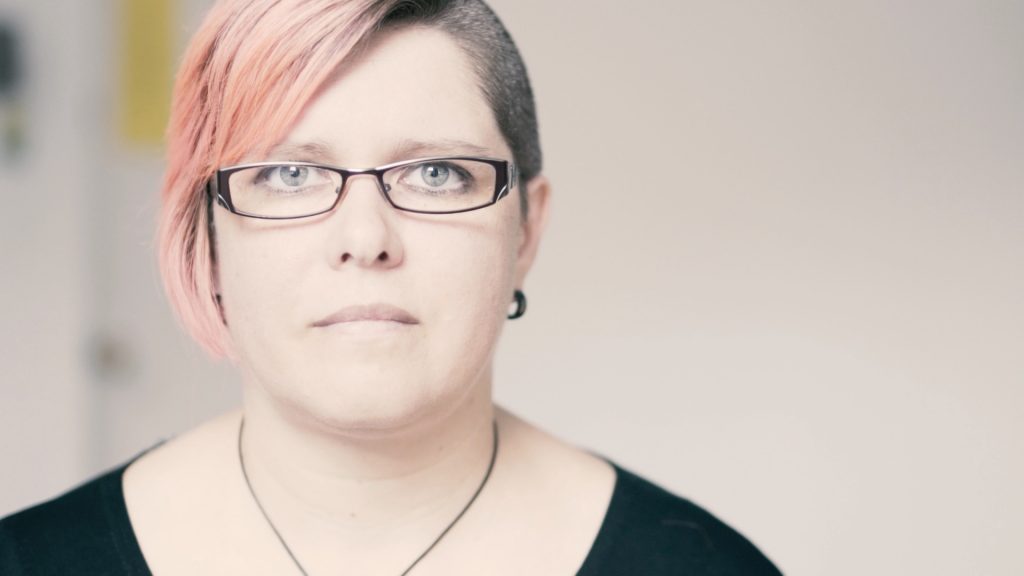Why I said no to sharing my story
I’m no stranger to sharing my story, I started my first blog in 2003, before blogs were a thing and before I’d been diagnosed with bipolar. I’ve always found it helpful to share how I’m feeling and the learnings I’ve made on how to manage my mental health.
In 2017 I started volunteering at Second Step, and was enthusiastic to share my story in the hope I could help others. I got involved in the #PuttingMeFirst project and shared my story on video. I found the whole process of this project empowering and the feedback was really positive.
Saying No
When I started working for Second Step in 2018, I continued sharing my story through blog posts and social media which I was really happy to do. Despite this, recently when approached to share my story for a social media post, I declined. Why did I do that?
Partly because for the previous few months, I had been the focus of a few social media stories. It started to feel like we were over-using my story and I felt my message was being diluted, which left me not feeling comfortable with what was happening.
Bad Experiences
A few years ago I spoke to a journalist at a national magazine. She had read one of my blog posts and asked to write a story about it. I spoke to her, had a photographer come to my house to take pictures for the piece and was really excited about getting involved. However, when I saw what she had done with my story, I was devastated. She had turned it into a sensationalised tacky story that painted me as completely unstable. I swore I would never speak to a journalist again.
Recently, that changed. A journalist I know of was asking for help with a story she was writing for a well-known and respectable national magazine. We talked, I felt comfortable sharing with her and the story she is writing will be published in January next year. The thing that made me OK to speak to her was that she also has bipolar and understands what sharing your story means and that the story is precious and not a tool for magazine sales.
Should you share your story?
Sharing your story involves taking time to decide if you are sharing it with the right people, at the right time, in the right place. I’ve put together some things to consider if you are thinking about sharing your story.
- Consider what purpose sharing your story has. Who wants to share it and why? If you don’t feel comfortable with the answer you can always just say no.
- Think about how your story will be shared, it’s likely with your story going online it will be widely seen. So make sure you feel comfortable with how accessible it may be.
- Be yourself, share your story honestly and openly, as much as you are comfortable with it.
- Connected with the last point is to know your boundaries. Don’t tell more than you are comfortable with, if there are aspects of your story you want to keep private then you are quite within your rights to do so.
- If you are talking about other people, consider if you need their permission. This is especially prevalent if you share names or photos that include others.
- You don’t have to use your name if you aren’t comfortable with it. It’s easy to substitute it for a pseudonym.
- Sharing your story can cause some strong emotions and memories of past experiences. Ensure you have a strong network around you who can help should this happen.
- You can revoke your permission at any time. If you felt comfortable with sharing at the time you wrote your story but have since changed your mind, this is OK.
- Keep in mind that your audience may feel uncomfortable or triggered by some of the things you talk about. Suicide and suicidal thoughts are particularly sensitive subjects. The Samaritans have a good resource they wrote for the media, but the things they talk about definitely apply to all written work. https://www.samaritans.org/about-samaritans/media-guidelines/
- Consider what you actually want to talk about…ideas on what could be included:
- Success stories during your recovery
- What support system you’ve had that has helped
- Your own unique view on your recovery
- Challenges you’ve overcome
- Your first experience of illness
- Your recovery journey to wellbeing
- Your motivation for sharing your story
- Where are you now? How did you get there?
- Where do you want to tell your story? A blog, social media, video, newsletter etc
- How do you want to tell your story? It can be more creative such as a poem, song, art, photography etc.
Telling your story is a powerful thing. It helps you understand the journey you’ve been on, helps others who are still on their journey, and can be a liberating process. At Second Step we really value and appreciate people sharing their stories with us and the communications team is always here to help you share your story successfully and comfortably.

Main photo by Claire Robinson-Ayres
